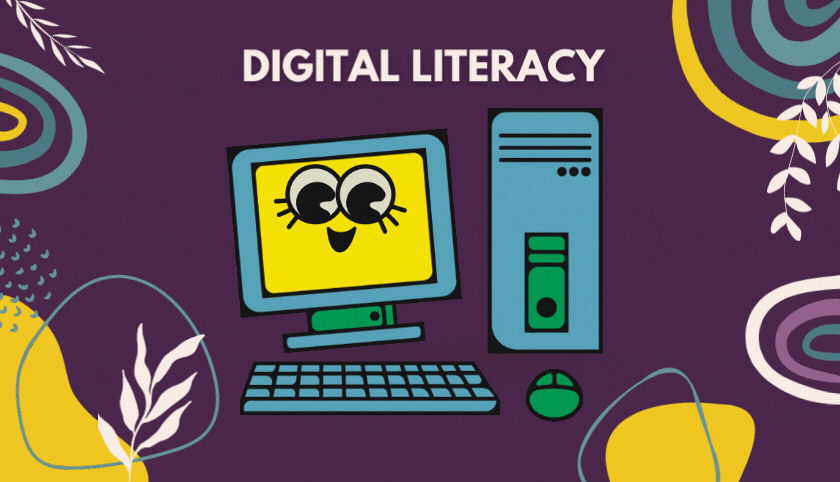Literacy has traditionally been thought of as reading and writing. Although these are essential components of literacy, today our understanding of literacy encompasses much more. Alberta Education defines “literacy as the ability, confidence, and willingness to engage with language to acquire, construct and communicate meaning in all aspects of daily living.” As shared by Christine and Bart, the articles about media literacy give a good understanding of media literacy, and how it helps our school administrators, educators, parents, and students to effectively use and learn about media literacy. Language is explained as a socially and culturally constructed system of communication. While exploring literacy, I came across a beautiful and interactive video which explains digital literacy in today’s world.
Digital Literacy
Digital literacy means being able to critically use technology, navigating through various online forums and devices, understanding how technology works and being able to creatively and inventively manipulate technology to solve problems. It goes hand in hand with media literacy.

Basically, being digitally literate means being able to use technology to solve problems and to express yourself. Contrary to popular belief, young people are not necessarily digitally literate just because they are competent in using technology – it depends on what they use it for.
(Source: What is digital literacy and why is it important for Canadian youth?)
(Read more: Digital Literacy Fundamentals)
Media Literacy
Media Literacy refers to your ability to understand the messages you are being told on television, radio, video games, movies, news programs, social media, and more. Essentially, media literacy means understanding:
- Media is constructed with a specific purpose in mind – it’s designed to make you think something
- People will see the same thing and understand it differently
- Constructing media is a business
- It reflects political and cultural ideas
- The type of story changes depending on the type of media
(Reference: https://gaspelit.ca/types)
The benefits of media literacy for students are multiple. First and foremost, media literacy helps students become wiser consumers of media as well as responsible producers of their own media. Along those same lines, teaching media literacy helps to foster critical thinking in students. This type of thinking can eventually become second nature, which will help them in many areas as they grow older. The focus is more on strengthening process skills, not content knowledge. Media literacy will continue to play a key role in creating a new generation that can retain critical thinking skills in the midst of a media blizzard. It’s an area where teachers who learn about media literacy can have a profound impact.
Who knew that media literacy meant more than just being able to use a technology device or platform and that it meant you actually had to comprehend what it was saying and then use critical thinking? If someone asked me before this class what it meant to be digitally literate I would have thought it meant if I felt I could use technology or easily figure out platforms with minimal teaching. I have a new and deeper understanding of what it means and how to teach it.
Thanks for outlining the many different ways of being digitally literate or media literate. I think too often we think of being digitally literate as being able to use technology or explain to someone else how to use technology, but what we often forget is that we don’t take into account the critical reflection piece. I think many people are missing that critical reflection piece and we saw that especially through lockdowns and with all of the current events that are happening in the world today. Thanks for the good reminders.
I completely agree with Christine. Before this class, I did not realize the complexity of the term “digitally literate”. Basically I thought that being able to use technology meant that someone was digitally literate. And Kelly is completely correct when she says that we are missing the critical reflection piece. Speaking for myself, I think that my avoidance of reflection on certain technology tools has hindered me in exploring certain aspects of the digital world. Thanks for the great summary, Gunpreesh.